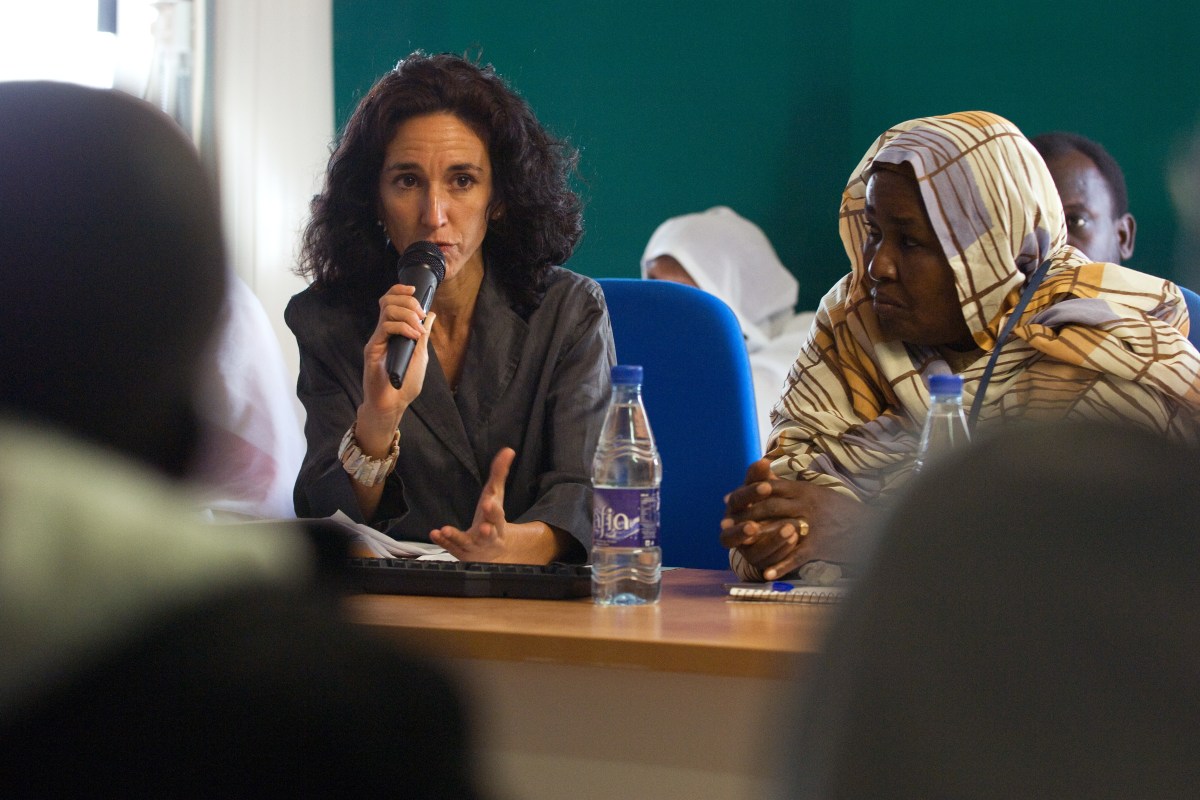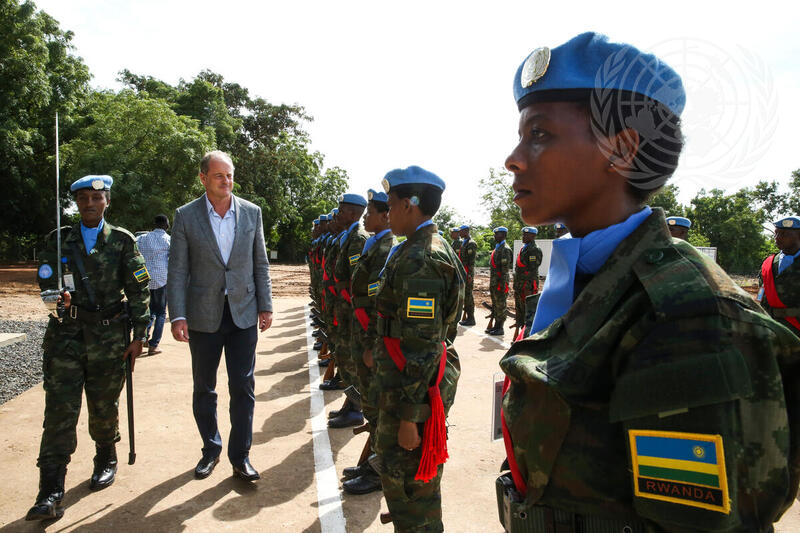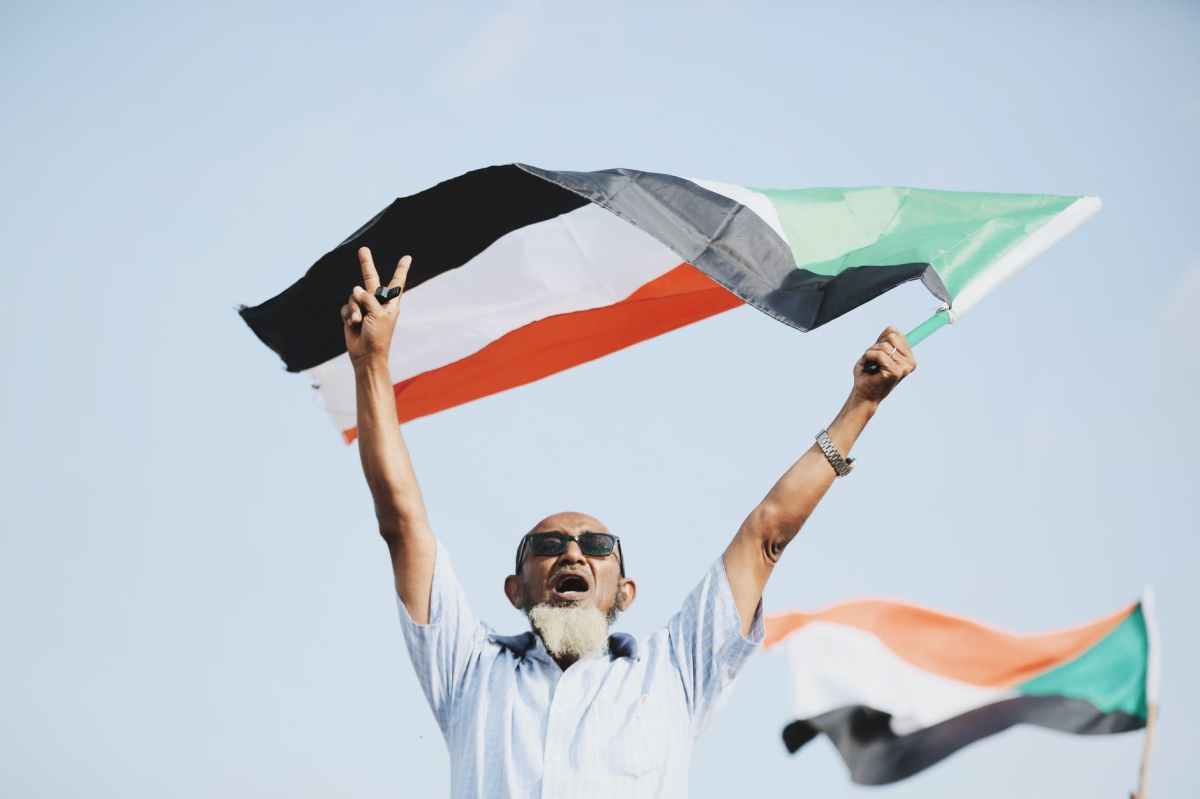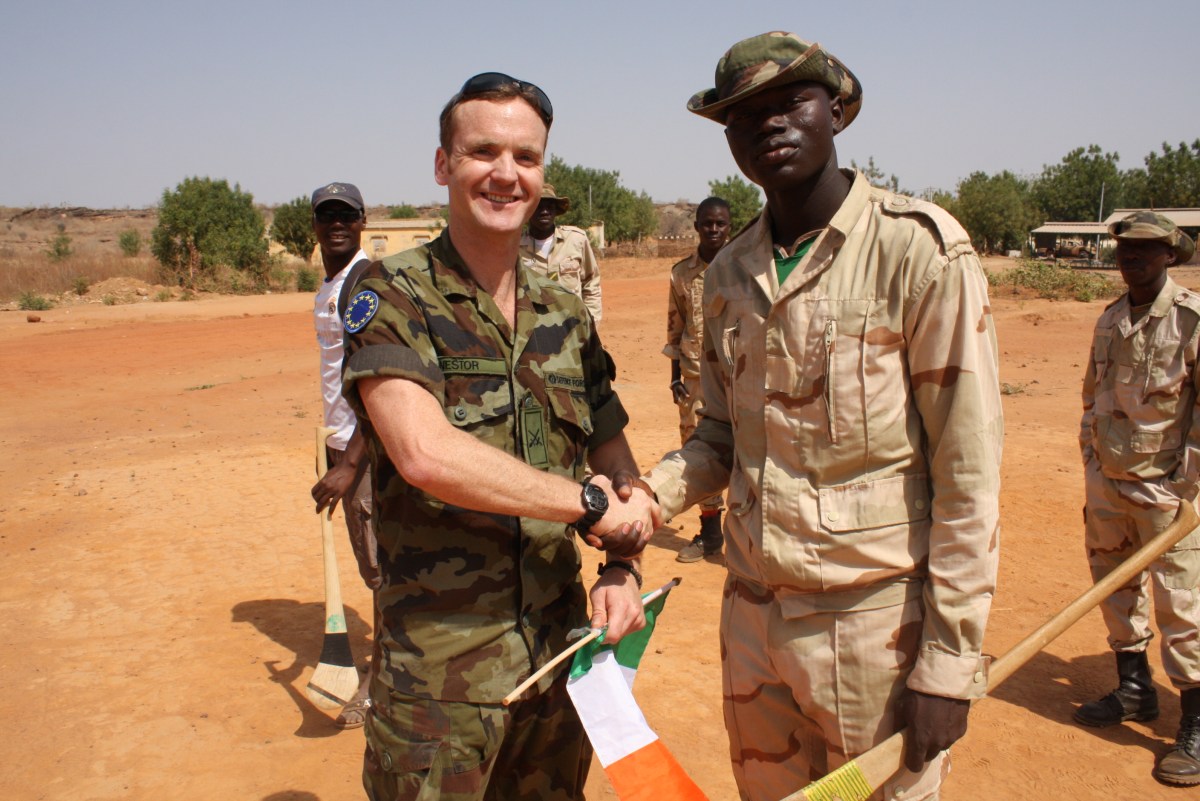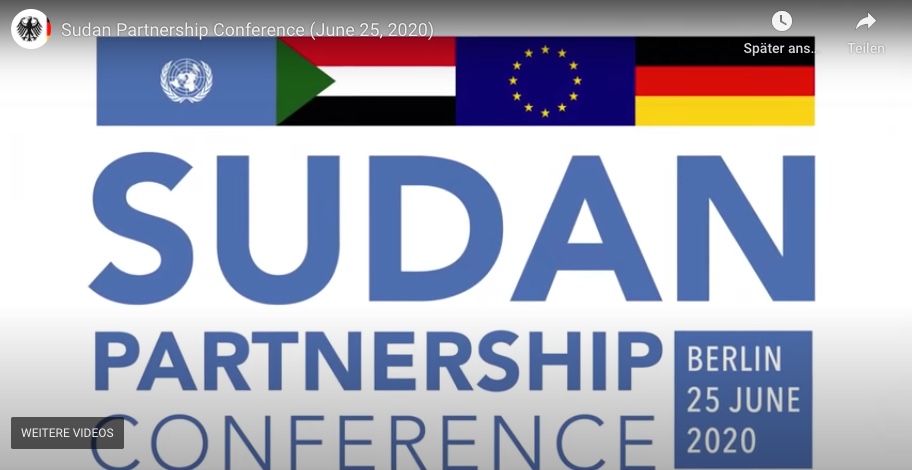Dieser Beitrag erschien am 28.4.2021 auf dem PeaceLab Blog.
Bekenntnisse zu gemeinsamen Zielen sind das eine, vertrauliche Zusammenarbeit das andere. Noch vor wenigen Jahren konnte man den Eindruck gewinnen, dass sich die Kernressorts der Konfliktbearbeitung Äußeres, Entwicklungszusammenarbeit, Verteidigung, Inneres und das Kanzleramt nicht die Butter auf dem Brot gönnten. Man konkurrierte um Partner, Aufmerksamkeit und Ressourcen und lud auch schon mal zu separaten Treffen mit den gleichen Themen am gleichen Tag ein.
Der Leitlinienprozess ist mit merklichen Fortschritten in der Ressortkooperation einhergegangen. Als Teil von neuen ressortgemeinsamen Strategieprozessen kommen die RessortvertreterInnen tatsächlich regelmäßig zu Abstimmungs- und Planungszwecken zusammen. Der am 31. März 2021 veröffentliche Zwischenbericht der Bundesregierung zur Umsetzung der Leitlinien erwähnt diese Mechanismen, allerdings ohne Daten zu liefern, um sie bewerten zu können. Wie ein genauerer Blick auf ein neues Abstimmungsinstrument zwischen AA und BMZ zeigt, gibt es weiterhin strukturelle Hindernisse für wirkliche Kohärenz. Guter Wille allein reicht nicht.
Krisen lassen sich nicht in Ressortkompetenzen aufteilen
Gewaltkonflikte und fragile Kontexte lassen sich nicht sauber in die Kompetenzen von Ministerien untergliedern. Deswegen ist es so wichtig, die eigenen Ansätze in der Konfliktbearbeitung gemeinsam zu entwickeln und ständig zu überprüfen. Was bürokratisch scheinen mag, ist tatsächlich der Raum, in dem unvermeidliche Zielkonflikte ausgetragen werden. Hier wird präventive Politik konkret. Um als einzelner Akteur in komplexen fragilen Kontexten eine signifikante Wirkung zu entfalten, kommt es darauf an, alle zur Verfügung stehenden Hebel, Anreize und Ansatzpunkte miteinander zu verbinden. Für lokale und internationale Partner ist es leichter, sich nur einmal mit Deutschland abstimmen zu müssen und nicht mit verschiedenen Ressorts. Umgekehrt können „schwierige Partner“ ein fragmentiertes Auftreten Deutschlands leichter für ihre Zwecke nutzen. Eine Zusammenarbeit der Ressorts ist deshalb unabdingbar.
Meine folgenden Aussagen stützen sich auf vertrauliche Gespräche mit Beteiligten aus den Ressorts und Durchführungsorganisationen sowie zentrale Dokumente. Eine systematische Begleitung der ressortübergreifenden Abstimmung könnte noch spezifischere Einblicke zu Tage fördern.
Zwischen ehrlichem Bemühen und Abwehrhaltung: gemeinsame Planung in AA und BMZ
Ein entscheidender Anstoß zur Zusammenarbeit war der starke Anstieg der Mittel in der zivilen Konfliktbearbeitung. Seit 2015 haben sich die drei Titel Übergangshilfe (BMZ), humanitäre Hilfe (AA) und Stabilisierung (AA) (insgesamt knapp 3,3 Milliarden Euro im Haushalt 2021) zusammen mehr als vervierfacht. Im Finanzministerium sorgte man sich um mögliche Doppelungen und Ineffizienzen, da AA und BMZ zunehmend mit den gleichen Umsetzungspartnern ähnliche Projekte förderten. Parallel zur Umsetzung der Leitlinien beauftragte das Bundeskabinett die drei Ressorts AA, BMZ und BMF 2017 daher mit einer sogenannten „Spending Review“. Der Abschlussbericht der drei Ressorts fand jedoch „keine praktisch handhabbaren Lösungsansätze“, um die Projektförderung von AA und BMZ im Krisenkontext abstrakt voneinander abzugrenzen. Daher einigte man sich darauf, sich enger abzustimmen.
Aus dieser Einigung entstand das Konzept „gemeinsame Analyse und abgestimmte Planung“ (GAAP), das AA und BMZ im Mai 2019 beschlossen. Die beiden Ressorts wenden das GAAP-Verfahren laut Umsetzungsbericht derzeit für 16 Schwerpunktländer und bezüglich ihrer Unterstützung für die Afrikanische Union an. Für die Analyse teilen die zuständigen Länderreferate der beiden Häuser ihre eigenen Analyseprodukte. In jährlichen Planungstreffen legen sie auf Grundlage eines gemeinsamen Lagebilds Oberziele bezüglich des deutschen Interesses, des Bedarfes vor Ort sowie deutscher Einflussmöglichkeiten und Handlungsoptionen fest. Für konkrete Programme und Projekte tauschen AA und BMZ Projektskizzen aus. Eine zentrale Rolle für die Koordination der Projekte vor Ort übernehmen die Auslandsvertretungen. Im Gegensatz zu den überwiegend getrennt arbeitenden Ministerien in Bonn und Berlin haben die Botschaften integrierte Strukturen mit vom BMZ (und ggfs. weiteren Ministerien) abgeordneten VertreterInnen.
Bislang fällt die Zwischenbilanz zur Praxis des GAAP-Konzepts gemischt aus. Gesprächspartner in beiden Häusern heben ein ehrliches Bemühen der beteiligten Referate und Personen hervor, die Gemeinsamkeiten in den Vordergrund zu stellen. Doch der Erfolg des Austausches sei stark von den jeweils beteiligten Personen abhängig. Bei Ländern, zu denen es bereits eine intensive Zusammenarbeit gibt und sich die zuständigen BeamtInnen gut kennen, liefe es recht reibungslos (z.B. zu Irak und Nigeria). Andere sähen den Austausch eher als bürokratische Pflichtübung, die viel Zeit koste. Das zeigt sich auch an der zögerlichen Umsetzung: Das AA brauchte zehn Monate, um den GAAP-Beschluss in einem Runderlass intern aufzugreifen, während das BMZ die Liste seiner Partnerländer im Rahmen seines „BMZ 2030“-Konzepts ohne Einigung mit dem AA anpasste. Insgesamt spricht der Bundesrechnungshof von einer „Abwehrhaltung“ der Ressorts, statt die zusätzlichen Steuerungsmechanismen als Gestaltungsmöglichkeit zu begreifen.
Institutionelle, organisationskulturelle und konzeptionelle Unterschiede verhindern eine engere Zusammenarbeit
Das Grundgesetz sieht ein hohes Maß an Autonomie der MinisterInnen vor, die selbst für ihren Aufgabenbereich gegenüber dem Parlament verantwortlich sind. Die Bundeskanzlerin kann zwar über Meinungsverschiedenheiten ihrer KabinettskollegInnen entscheiden, aber nicht in deren Kompetenzbereich Maßnahmen ergreifen. MinisterInnen können ihren Spielraum durch „geschickten Umgang mit der Öffentlichkeit“ erhöhen, wie sogar die Seite der Bundesregierung schreibt. Die Entscheidung von Entwicklungsminister Gerd Müller im Februar 2020 nach einem Besuch eines Camps von Rohingya-Geflüchteten in Bangladesch die Entwicklungszusammenarbeit mit Myanmar einzustellen, ohne sich vorher mit dem Auswärtigen Amt zur politischen Einbettung abzustimmen, könnte man zum Beispiel einem entsprechenden Profilierungsanreiz zuschreiben.
Eine Folge der scharfen Trennung der Ressorts sind merkliche Unterschiede in der Organisationskultur und den Prozessen. Das BMZ ist es gewohnt mit Umsetzungspartnern zu operieren, während das AA nach dem Mittelzuwachs der letzten Jahre noch nach den effizientesten Verfahren sucht. Vorhaben des BMZ sind auf dessen Website für jedes Partnerland abrufbar; das AA hat bislang noch nicht einmal eine öffentlich verfügbare Strategie für seine Stabilisierungsprojekte. Der Elefant im Raum ist eine mögliche Zusammenlegung von AA und BMZ wie in anderen Ländern. In der Union kursieren bereits entsprechende Ideen. Besonders im BMZ gibt es erhebliche Bedenken, dass eine Zusammenlegung mit einem Bedeutungsverlust einer nachhaltigen Entwicklungszusammenarbeit einhergehen könnte. Großbritannien, das gerade seine Ministerien zusammenlegte und kurz darauf die Mittel für Entwicklungszusammenarbeit kürzte, erscheint als abschreckendes Beispiel.
Schließlich sind unterschiedliche Ziellogiken der zentralen Ansätze in Krisenkontexten in AA und BMZ ein weiterer Faktor, der engere Zusammenarbeit erschwert. Stabilisierung im Sinne des AA zielt darauf ab, politische Prozesse in Gewaltkonflikten zu beeinflussen und legitime politische Autoritäten zu stärken, häufig auf nationaler oder grenzüberschreitender Ebene. Im Zentrum stehen politische Opportunitäten und eine enge Steuerung mit hoher Flexibilität. Die strukturbildende Übergangshilfe des BMZ orientiert sich hingegen stärker an lokalen Bedürfnissen und will die Resilienz von Menschen in fragilen Kontexten fördern. Verbindlichkeit und Verlässlichkeit der Zusagen sind wichtiger als die kurzfristige Anpassung von Projekten.
Es braucht mehr politischen Druck zur Zusammenarbeit
Diese Hindernisse sind nicht unüberwindlich. Bundestag und Bundesregierung sollten mehr Anreize für ressortgemeinsames Handeln schaffen, nicht nur in der zivilen Konfliktbearbeitung.
Ein gemeinsamer Haushaltstitel für zivile Konfliktbearbeitung würde auf der institutionellen Ebene ansetzen, indem er ressortgemeinsame Analyse, Planung und Steuerung zur Voraussetzung für die Finanzierung von Projekten machen könnte. Um den laufenden Verständigungsprozess zwischen AA und BMZ in diesem Feld zu unterstützen, sollte so ein Fonds mit überschaubaren Mitteln starten und allmählich wachsen. Das primäre Ziel sollten politische Gestaltungsmöglichkeiten, nicht Kosteneffizienz wie beim Spending Review sein. Als Lehre aus einem ähnlichen Fonds in Großbritannien sollten die Ressorts transparent über die Mittelvergabe berichten und klare Standards für Wirkungsorientierung und Rechenschaftspflicht einführen.
Politische Führung und integrierte Strukturen können dabei helfen, die unterschiedlichen Perspektiven und Kulturen einander anzunähern. Wichtiger als neue Institutionen ist hier vor allem eine Arbeitskultur des Miteinanders auf allen Ebenen. Die zuständigen MinisterInnen müssten Gemeinsamkeit bereits auf ihrer Ebene vorleben, zum Beispiel durch gemeinsame Reisen und Termine. Auf Arbeitsebene sollten die Ressorts die Erfahrungen mit dem Arbeitsstab Sahel, der derzeit einzigen integrierten Arbeitseinheit mit MitarbeiterInnen verschiedener Ressorts und Abteilungen, systematisch auswerten. Zudem sollten die Ressorts Auslandsvertretungen, denen als integrierte Einheiten eine entscheidende Rolle in der Ressortzusammenarbeit zukommt, mit mehr Personal ausstatten.
Die unterschiedlichen Herangehensweisen lassen sich jedoch nicht durch Strukturreformen wegwischen. Ihnen zugrunde liegen zumeist echte Zielkonflikte in der Konfliktbearbeitung. Hier braucht es vor allem Orte in der Bundesregierung, im Parlament und in der Öffentlichkeit, um diese Konflikte offenzulegen und Herausforderungen zu diskutieren. Der nächste Bundestag sollte dafür den bisherigen Unterausschuss für zivile Krisenprävention, Konfliktbearbeitung und vernetztes Handeln aufwerten und den Austausch mit den anderen relevanten Hauptausschüssen stärken. Der neue Ausschuss sollte sich von der Bundesregierung regelmäßig berichten lassen, wie ihre ressorteigenen Instrumente sich ergänzen und abgestimmte Wirkungslogiken einfordern. Denn Krisenprävention funktioniert am besten gemeinsam.
